
The newly formed Modi Government 2.0 as it will become a guide for upcoming reforms and policies in the next 5 years to lead. Nirmala Sitharaman, Finance Minister had presented its first budget today, the focus is on what the Government has in mind to address pressing economic challenges the country is battling with - fall in consumer demand, reduced investment & savings and depleting agriculture incomes. Investors have low expectations about big ticket reforms, considering the crisis in the non-banking financial sector, the slowdown in the economy and a wide fiscal deficit that has shrunk the financial resources of the Government.
The auto sales have fallen in double digits for the third month in a row in June, GST revenues are below the One Lakh Crore mark this month and both manufacturing and core sector growth rates dropped in May. As per the Economic Survey 2019-20, the RBI is expecting GDP growth rate to inch higher to 7.2-7.5% between October to March 2019-20, from the current five-year low of 6.8%. Higher oil prices, overall global slowdown and weaker exports some of the reasons for fall in growth. She has proposed to make PAN and Aadhaar interchangeable, allowing those who do not have PAN to file income tax returns.
India’s plans to ease the rules in single brand retail are set to help Apple Samsung, Xiaomi, Oppo and OnePlus. They want to open their own stores in India. Since, the FDI inflows into India have remained robust despite global headwinds. The Economic Survey is tabled by the Finance Minister in the Parliament every year a day before the budget. This year's Survey is different as it based on 'blue sky thinking' or unrestricted ideas to boost economy, focuses on behavioural changes to address issues like gender inequality, savings and health and use of data to unlock growth potential.
It's a budget for all. The impetus on digital payments is encouraging for the entire cashless ecosystem. It has addressed issues which will make 'ease of living' for the poor, the middle class and more tax on rich. The budget gives a concern on the Petrol to get costlier and the housing relief to middle class is a welcome move.
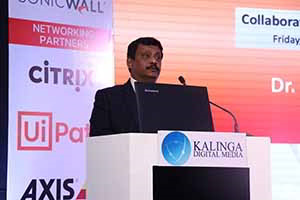 Dr. Deepak Kumar Sahu, President & CEO - VARINDIA
Dr. Deepak Kumar Sahu, President & CEO - VARINDIA
“Union Budget 2019 is very path breaking, with the intention of the Government to bring back the economy on track to become a USD 5 trillion economy in 5 years. Announcement for disinvestment target of over Rs 1 lakh crore and it will continue to pursue strategic disinvestment of Air India and other PSEs.
The government reiterated its intention to invest Rs. 100 lakh crore in infrastructure and said an expert committee will be set up. A singly monthly return for GST was also introduced. Secondly, a good move by the government’s plan to re-energize the education sector is a positive step to boost the morale of young learners. Lastly, I would say, it's a very comprehensive budget.”
 Sudhindra Holla, Sales Director - Axis Communications India & SAARC
Sudhindra Holla, Sales Director - Axis Communications India & SAARC
“The Union Budget 2019 depicts the milestone set towards reaching USD 5 trillion economy by investing on infrastructure, digital economy and job creation. It brings us one step closer the economic growth as part of the five years plan with key focus on infrastructure development allocating budgets for roads, ports Infrastructure and logistics. We welcome the government’s focus on the construction and development of highways under the National Highways Programme, to ensure creation of National Highways Grid of desirable capacity. Also applaud the continued focus and investments towards rail infrastructure by announcing and an investment of 50 lakh crores.
We also look forward to the focus on improving skills of our youth in areas such as Artifical Intelligence, Big Data, Robotics, This in turn will ensure more stability of jobs both in India and abroad. Furthermore, doubling allocation to Digital India will empower the semi-urban geographies and provide businesses to upscale and help in the country’s vision to a digital-first economy.”
 Avneet Singh Marwah, Director and CEO - Super Plastronics Pvt. Ltd, a Kodak brand License
Avneet Singh Marwah, Director and CEO - Super Plastronics Pvt. Ltd, a Kodak brand License
“As expected, this was a historical budget by the government covering almost all sectors, from education, infrastructure to manufacturing. One of the highlights of this budget for the industry is - the corporate tax bracket, which is expanded to bring companies under its umbrella with a turnover of up to 400 crores. It will cover almost 98% of the companies in India. Ease of doing business and filing of tax returns will save a lot of time and costs for companies. Also, an e-assessment procedure which has been proposed will be a game changer for the tax assessment structure in India.
We were also expecting a reduction of custom duties on Open cells, as TV's under FTA have generated revenue of more than 4500 crores, which in turn is impacting the growth of ‘Make in India’ initiative. Secondly, an expectant cut in the GST rate for televisions of 32 inches and above was not announced. The government has also mentioned strict policies and legal action are to be taken against unorganized trade in India, which is now 15% of the market share and a revenue loss of $1 billion. This is also going to help in boosting our industry immensely.”
 Debajit Roy, Country Director - QAD India
Debajit Roy, Country Director - QAD India
"The government's move to lower the GST on Electric Vehicles has opened new avenues for the industry. Reducing the GST on EVs from 12 per cent to 5 per cent can be seen as a big step in favor of sales of EV cars in India. The deduction of Rs 1.5 lakh on the loan interest to purchase an electric vehicle in India will not just benefit the industry but also for consumers who are looking to switch to electric vehicles.
There is pool of the companies emerging in this space to evolve the entire ecosystem and the opportunities created by government will enable these companies to penetrate fast. Moreover with the liquidity gap being addressed in this budget, the industry will even move forward towards economy's growth."
 Abhishek Kumar, Regional Director, South Asia - Oncam
Abhishek Kumar, Regional Director, South Asia - Oncam
“The Government has earmarked Rs. 50 lakh crore for the development of railway infrastructure. A sizeable part of it will be diverted towards avant-garde surveillance solutions for smart management across railway stations as well as various nodes in railways. The Union Government's focus is also on rural infrastructure expansion and we believe that surveillance will be an integral element in this development. Another key takeaway for the surveillance industry is that the Government also has a positive view towards the Artificial Intelligence technology and will be promoting indigenous research and development around AI, Big Data, and Robotics. Further, it has taken a slew of measures aimed at the Indian startup ecosystem, who will be looking towards the AI technology and security for development of high-end products and ensuring seamless processes. We appreciate the Finance Minister and her team for meticulously balancing all dynamics to bring about favourable market results."
 Snehashish Bhattacharjee, Global CEO - Denave
Snehashish Bhattacharjee, Global CEO - Denave
"The budget, overall, is positive and covers the entire gamut of economic pillars in one go - farmers, youth, start-ups, women, middle-class segment, health society, green energy etc. Extending the 25% corporate tax applicability to INR 400 Cr turnover companies (pretty much 99.3% of the organizations in the country) is in line with the commitment of this government to reduce corporate tax across segments. The FM, acknowledging the angel tax issue will give a boost to the start-up ecosystem, which will set our course towards nurturing the camaraderie of technology and innovation. It shall also prove to play a pivotal role in boosting and increasing employment opportunities. Further, the Gaon Gareeb & Kisan forum will help in improving the quality of life at the grass-root level.
The budget will serve the country with an environment to grow and experience the best, with the entire gamut of economic verticals coming together to bring India’s vision into reality."
 Sriram S, Co-Founder - iValue InfoSolutions
Sriram S, Co-Founder - iValue InfoSolutions
“Interim budget stole the limelight on popular front being just before the elections. Hence the scope for more SOPs were limited with challenges to lower tax collections and lower growth issues. With limited options the government did try to send positive signals for reviving business growth and enhance consumer spending.
Good to see focus and thrust on basic needs like water, electricity, clean cooking medium in rural areas. 25% corporate tax for business up to INR 400 Cr is a great relief to all growing entities providing employment. INR 70,000 Cr capital infusion into government owned banks this year to boost credit along with boosting capex on Digital initiatives Pension benefits to INR 3 Cr retail traders and shopkeepers whose annual turnover is upto Rs. 1.5 Cr is a good move.
The MSMEs, an integral part of India's economy, has witnessed a better allotment of funds. Loans up to INR 1 Cr for GST registered MSMEs on fresh or incremental loans @2% interest will help in growing business at affordable costs. 1.5L deduction on affordable homes and EV should help in boosting domestic real estate sentiments along with promoting green commute.”
 Jaya Vaidhyanathan, President - Bahwan CyberTek
Jaya Vaidhyanathan, President - Bahwan CyberTek
“Overall it is a positive budget both from growth and regulatory points of view. I am glad that our Finance Minister started with “India Inc. understands Make in India”. As a Fintech company that is made in India, we strongly welcome that sentiment, and we are hopeful that there will be more SOPs for FinTech’s in India. This combined with the Regulatory sandbox that came up recently will bring a lot of innovation into the FinTech industry in India. The next best aspect of the budget is the focus on NBFC, and we truly appreciate that the Govt will provide a one-time 6-months partial credit guarantee for public sector banks, for the purchase of pooled assets of financially sound NBFCs. We look forward to a continued focus on the sector. On the regulations front, we think the proposal of the housing finance sector returning to RBI is welcome if it effectively materializes. A couple of more highlights, one is the exemption of IT scrutiny for funds raised by start-ups. I believe this will encourage entrepreneurship and innovation across the country. Second is the FDI support for the aviation industry as it is going through lots of changes with limited operators.”
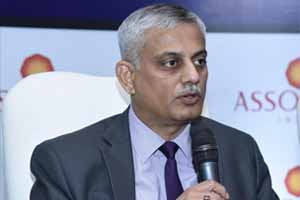 Deepak Maheshwari, Director of Government Affairs, India, ASEAN & China - Symantec
Deepak Maheshwari, Director of Government Affairs, India, ASEAN & China - Symantec
“Within just four years since its launch, impact of the Prime Minister Modi’s visionary program Digital India is visible everywhere, from accelerated growth in digital payments to increasing simplification of tax returns. No wonder, it is one of the ten pillars for realizing his vision of India’s evolution and development over the next decade.
Accordingly, Union Budget 2019 highlights the crucial role of interoperable and digitally enabled platforms and grids from energy and taxation to highways. In addition, the focus on fostering and supporting technological innovation is loud and clear whether one looks at Artificial Intelligence and Robotics or 3D printing and Virtual Reality.
However, if not protected well against vulnerabilities and malicious actors, crippling of digital systems or data breaches can have far-reaching and devastating impact, especially in critical information infrastructure sectors. Hence, the government must set aside ten percent of technology budgets exclusively towards cyber security. In addition, cyber safety must become part and parcel of the Digital Literacy and Financial Inclusion initiatives.”
 Sampad Swain, CEO & Co-Founder, Instamojo
Sampad Swain, CEO & Co-Founder, Instamojo
“With India set to become a $3 trillion economy this year, the first union budget by the Modi 2.0 government has introduced several benefits for the MSME sector. Over the years, MSMEs have been battling to get loans, given their inability to produce relevant assets as evidence. In fact, the current gap between the demand and credit supply within the Indian MSME sector is about $230 billion. The introduction of the 1 crore – 59 minute MSME loan brings great relief to small business owners, making easier accessibility and processing of loans through a single portal. This in turn will translate into the stability and growth of the sector, with the sustenance of existing business and birth of new ones. Also, the pension programme for 30 million retail traders is an encouraging move, keeping in mind that the Indian retail space is still majorly driven my small business owners and traders. This not only brings a long-term life plan for these traders, but also helps towards the gradual formalizing of this majorly unorganized sector.”
 Atul Rai, CEO and Co-Founder - Staqu
Atul Rai, CEO and Co-Founder - Staqu
The new Government's first Union Budget has perfectly balanced all essential parameters of our economic dynamics including infrastructure enhancement, skill development, job creation, and technological advancement. This has been done while also creating favourable environment for businesses and especially, tech-centric start-up. We would specifically like to highlight the Government's strong focus on the indigenous Research and Development with establishment of National Research Foundation will promote indigenous technological development, particularly around globally scalable technologies such as Artificial Intelligence, Big Data, and Robotics. We believe that this will pave the way for cutting-edge indigenous solutions and make India a technological epicenter in the international grandstand."
 Kartik Walia, Head of Operations (India) - Amplify.ai
Kartik Walia, Head of Operations (India) - Amplify.ai
"We see multiple positive takeaways from this year's budget. The government, while adding greater impetus on digital adoption and infrastructure enhancement, has a positive outlook towards promising technologies including Artificial Intelligence and Big Data. It has recently announced the launch of National Artificial Intelligence Center and National AI Portal and now, in the Union Budget, has promised to build skillsets in ultramodern technologies such as AI, Big Data, and Robotics. The Government's technology-centric strategy is highly appreciable and we believe that favourable results will be visible in the near future.”
 Tarun Bhalla, Founder & CEO, Avishkaar
Tarun Bhalla, Founder & CEO, Avishkaar
”I’m delighted to hear the Government will be working towards improving our youth skill levels in AI, Big Data, IoT along with Robotics. These skills of the future will ensure that our youth are prepared and able to secure jobs both in the country and abroad. It’s a commendable step helping align education with industry requirements.”
 Aakrit Vaish, Co-founder and CEO - Haptik
Aakrit Vaish, Co-founder and CEO - Haptik
The demand for specialised skillsets in niche technologies like Artificial Intelligence and Machine Learning has increased drastically. The government has recognized and addressed this schism by pledging to train 10 million youth in industry relevant skills like AI, IoT and Big Data. We, at Haptik are also constantly empowering the developers and enthusiastic engineers to build next-generation conversational AI on a daily basis. We are delighted to see that our government is also putting efforts to improve the skills of our youth in newer areas such as Artificial Intelligence, Big Data, Robotics.
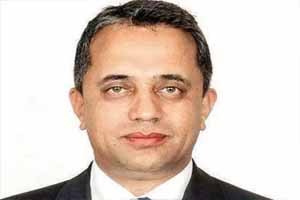 Pranav Roach, President - Hughes Network Systems
Pranav Roach, President - Hughes Network Systems
“It is encouraging to see Budget 2019 taking cognizance of the growing opportunities in the space domain and also talking about increasing India’s global footprint in this sector. This is important because the Indian satellite communications sector is perhaps the only industry still stuck in the 2G era and suffers chronic capacity shortage resulting in users continuing to pay much higher than global rates. There is a surge of investment and innovation in the space sector globally driven by private sector but in India the private sector is locked out and a huge investment and employment opportunity is being lost.”
 Akshay Singhal, Founder - Log 9 materials
Akshay Singhal, Founder - Log 9 materials
“Income tax deduction on loans for EV purchase is an extremely welcome move by the new Finance Ministry. EVs are pricier than usual vehicles as initial cost, hence this will boost adoption. Relief from angel tax is also a big thumbs up and relief for start-ups. However, better structuring is required for deployment of Fund of Funds to ensure benefit to high technology intensive start-ups which fall in the category of high risk, high reward. This is important for development indigenous core technologies like battery manufacturing, fuel cell manufacturing, etc.”
 Anjali Amar, Country Manager - Verizon Enterprise Solutions
Anjali Amar, Country Manager - Verizon Enterprise Solutions
“We welcome the Union Budget's focus on closing the technology skills gap in the face of disruptive technologies such as Artificial Intelligence (AI), Big Data, and Robotics. The economic and societal benefits that these technologies are poised to deliver means that it is imperative to reskill India's IT workforce. This will ensure that tomorrow's IT executives will be armed with the necessary knowledge to future-proof India's digital future.
We are also pleased to note the Government's initiatives in promoting digital payments. This is a recognition that digital payments sector is no longer considered niche and is crucial for the digital transformation of India. As India strives towards a digital and cashless economy, the Government should also continue to strengthen its cyber-security framework. A robust data protection system which is technology-neutral and based on international norms with principles of transparency, accountability will be the catalyst to fuel investment and innovation in new services.”
 Satish Reddy, Chairman- Dr. Reddy’s Laboratories
Satish Reddy, Chairman- Dr. Reddy’s Laboratories
While welcoming the emphasis on start-ups and education sector as a good move, he said there, however, was nothing to fuel growth in the healthcare and pharma sectors, which was disappointing. I was particularly keen on seeing a change in the weighted deduction for R&D which did not happen. A positive policy move of this kind would have spurred R&D and innovation in pharma and other sectors.
 Dr. Keshab Panda, L&T Technology Services, CEO & MD
Dr. Keshab Panda, L&T Technology Services, CEO & MD
“The government’s focus on positioning India as the top destination for research and innovation augurs well with the interests of the ER&D industry. Moreover, the announcement on providing support to the skill development initiatives related to AI, IoT, 3D printing, VR, Robotics has the potential to establish India as a global talent hub for digital technologies. Lastly, earmarking Rs.10,000 crore over a three year period towards building a wider ecosystem of electric vehicles is a welcome move. It is now for the value chain players to come together and replicate the success achieved by Indian ER&D players for global auto majors on the EV front.”
 Siddharth Viswanath, Partner and Leader, Cybersecurity, PwC India
Siddharth Viswanath, Partner and Leader, Cybersecurity, PwC India
“It is good to see the finance minister Nirmala Sitharaman promote Digital India in her maiden Budget speech. The focus on BharatNet program which aims to connect every village block via high-speed broadband and on creating a pool of skilled professionals in areas such as AI, robotics, VR, 3D, etc, is commendable. For India to be truly digital and fit for future economy, we also need to nurture and build cyber skills and technologies.”
 Vamsi Krishna, CEO & Co-Founder, Vedantu
Vamsi Krishna, CEO & Co-Founder, Vedantu
“Digitization has given a major boost to the robust education system in India - the second largest market for e-learning after the US. Therefore, a National Education Policy to bring India’s higher education system on par with global standards will be a big leap towards bolstering the e-learning market. The government’s plan to re-energize the education sector is a positive step to boost the morale of young learners. On the back of this emerging technologies such as AI & ML will help in spreading education across the country.
 Vineet Chaturvedi, Co-Founder, Edureka
Vineet Chaturvedi, Co-Founder, Edureka
"This union budget has given due importance to skilling and education which is a welcome move in today's skill-driven industry. The expansion of Skill India to include AI, IoT and other futuristic technologies hits the nail on the head and the establishment of National Research Foundation is a major boost towards building India's technical competence. Additional allocation of budget to Bharatnet will also have a deep impact on skilling rural India as it has the potential to open up online learning to students and professionals from remote villages. All in all, I am happy that Education has received 10% higher allocation in this budget which will help schools and higher education institutions in the country invest in catching up with industry requirements."
 Abhishek Jain, Tax Partner, Ernst and Young
Abhishek Jain, Tax Partner, Ernst and Young
"The budget from an indirect tax perspective was mostly aligned to the Government's Make in India, cleaner India and ease of business agenda. Proposal of Legacy Dispute Resolution Scheme was much sought for by industry players as most of them wanted to settle litigations of the past after stepping into the new tax era. Also, rate rationalizations for strategic goods like defence equipment, etc are welcome for the nation as a whole."
 Gaurav Hinduja, Co-Founder & Managing Director, Capital Float
Gaurav Hinduja, Co-Founder & Managing Director, Capital Float
“The Government continues to identify the MSME sector as being critical towards increasing our country’s GDP and employment. The push for increasing acceptance of digital payments, Interest subvention scheme and waiver of MDR charges are key to MSME economy which will not only boost financial inclusion but will also create a conducive environment for NBFCs including fintech players to grow and succeed.
 Rajan Navani, Vice Chairman & Managing Director, JetSynthesys
Rajan Navani, Vice Chairman & Managing Director, JetSynthesys
“The ease of Angel Tax comes as a welcome move for the start-up community. Further, the introduction of an e-verification mechanism gives an impetus to companies improving ease of doing business, driving efficiencies for investors, and bolstering the start-up ecosystem in India. To deliver on the country’s Digital India vision, we believe that an increased focus on initiatives for new-age skills in Artificial Intelligence, Big Data, Robotics, etc. will further bridge the gap between technology and talent. This sets the tone for the industry to move from Start-up India to Scale up India.”
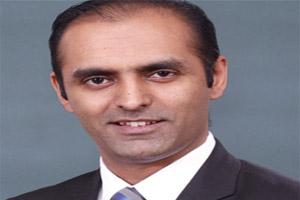 Kunal Wadhwa, Partner – Indirect Taxes, PwC
Kunal Wadhwa, Partner – Indirect Taxes, PwC
"GST amongst key structural reforms in the last 5 years to bring India to $3 trillion economy. Clearly GST has included various businesses under the formal economy and would continue to support the country's economy to grow and reach the $5 trillion target for the economy."
Secondly, the legacy dispute resolution scheme under indirect tax is a big move to clear the pending backlog of indirect tax disputes under the central laws covering central excise duty and service tax giving immediate revenue to the government.
 Sudhir Singh, Managing Director, Marg ERP Ltd.
Sudhir Singh, Managing Director, Marg ERP Ltd.
"SMEs and MSMEs will play the most significant role in achieving India's ambitious target of becoming a $5 trillion economy by 2025. To give a positive push and create a productive environment for this segment to flourish, there is a need for perfect ease of doing business environment, nurturing a demand based skilled manpower and wide adoption of technological advancements in SME and MSME sector. Allotment of Rs 350 Crore for 2 per cent interest subvention for all GST-registered MSMEs under the interest subvention scheme is a step in the right direction.
The Budget has also given a boost to Nation’s entrepreneurial spirit by extending Standup India scheme till 2025, setup of 80 Livelihood business incubators and 20 technology business incubators to develop 75,000 skilled entrepreneurs in agro-rural industries, encouraging women entrepreneurs and several other measures to streamline labour laws, education, and rental housing segment which will have a direct impact on startups in the country."
 KNM Rao, Co-Founder & CEO, Quick Ride
KNM Rao, Co-Founder & CEO, Quick Ride
“The new government has come out with a well-defined budget keeping a 10-year vision in mind to promote India’s digital economy. We appreciate the Finance Minister’s proposal to start a new TV channel exclusively for Startups on Doordarshan which will serve as a platform for startups like us to disseminate information to the industry. In addition the holistic set of tax benefits will be an added advantage and a major boost to thousands of startups in India. Other key initiatives such as no service fees on the digital payment, reduction in the tax rate of electric vehicles and special forum for collecting funds for social enterprises are welcome moves.”
Lastly, while delivering the Union Budget speech, FM Nirmala Sitharaman said,"It took India 55 years to reach a $1 trillion economy. When hearts are with hopes and aspirations, we added $1 trillion in just five years. The common man was served even when transformational reforms were laid out. We have to invest heavily in infrastructure. Citizens felt the difference in every nook and corner. Our focus has been mazboot desh ke liye mazboot nagrik (strong citizens for a strong nation)."
 Manoj Ladwa, Founder and CEO, India Inc.
Manoj Ladwa, Founder and CEO, India Inc.
The Finance Minister has signalled to reform the Indian factor markets – land, labour and capital – which a majority of analysts acknowledge as the big drag on the economy. She announced that 44 labour laws will be crunched into four codes that will simplify laws and reconcile the many contradictions and conflicts that now bedevil India’s labour market. She was short on details, but in terms of signalling, it sent out a powerful message that the Modi government is serious about making India a globally competitive investment destination.
Sitharaman, took another step towards redeeming the pledge of reducing corporate tax to 25 per cent for companies with a turnover of an estimated $57 million. This means 99.3 per cent of all companies will now pay tax of 25 per cent of their net profits – bringing India closer to the tax rates of competitor economies such as the ASEAN nations.
I see many experts and analysts on Indian television channels questioning why this lower tax rate wasn’t extended to all companies, i.e. why 0.7 per cent of companies were left out. It’s a fair point. Hopefully, it will be addressed in the coming years.
 Dr. Jaijit Bhattacharya, President, Centre for Digital Economy Policy Research
Dr. Jaijit Bhattacharya, President, Centre for Digital Economy Policy Research
"Very comprehensive budget with deep structural reforms laid out, that is the need of the hour. Heartening to see continued focus on social safety net in both urban and rural areas and new focus on extending pension to small shopkeepers. The continued focus on public spending, including on infrastructure and housing, would help get the economy on track to become a USD 5 trillion economy in 5 years."
 Dr. Omkar Rai, Director General, Software Technology Parks of India (STPI)
Dr. Omkar Rai, Director General, Software Technology Parks of India (STPI)
“As government has taken so many remarkable reforms with this budget for boosting the economy, we are on the path of achieving a sustainable GDP growth rate of 8% in becoming a $5 trillion economy by 2024-25. Government focus on aggregating the services of key sectors such as infrastructure, energy, developing model for public-private partnership intending towards lot of collaborations by way of leveraging emerging technologies, FDI, ease of doing business, focus on R&D and digital economy shall definitely change the functioning of industry verticals and increase their productivity, which, in turn, will help in creating massive job opportunities and ensure all-inclusive growth of the countrymen. This development will eventually bring less-privileged people into the mainstream of the society.”
 Pankaj Muthe, Program Manager, Academic Program, APAC - Qlik
Pankaj Muthe, Program Manager, Academic Program, APAC - Qlik
“The government’s continued push to improve the quality of higher education in India is extremely commendable. The allocation of INR 400 crore to create a world-class higher education ecosystem in the country will definitely improve the quality of talent that joins the workforce. The focus on the amplification of skills in new-age tech domains such as AI, IoT, Big Data, and Robotics will also help to address the severe skills shortage that businesses across India are facing at present, apart from opening newer avenues of career growth for Indian professionals. The government should also make stronger efforts to incorporate data literacy training at the grassroots level and incentivise organisations to launch data literacy training initiatives for their employees. Doing so will equip current and future Indian professionals with the required knowledge and competencies to navigate the data-driven world of tomorrow.”
 Abhishek Goenka, CEO & CFO - CoWrks
Abhishek Goenka, CEO & CFO - CoWrks
“This was a budget with many differences. On the positive side, there was more focus on strategic initiatives, such as no charges on fund transfers, tax deduction on loans for EVs, interchangeability of Aadhar and PAN and the various measures on easier KYC. Added to this, the proposed 4 codes to cover all labour laws is extremely positive. These initiatives will have a catalytic effect in not just achieving the specific objectives but also, a larger spiral of increased compliance and economic extension.
On the flip side, there hasn’t been adequate emphasis on fiscal discipline, and the approach of a sharp increase in tax rates for the rich as the only revenue enhancement measure is unimaginative to say the least. I am also disappointed that the corporate tax rate has not been reduced across the board.”
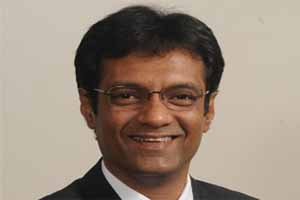 Anand Ramachandran, CFO - Ingenico ePayments India Private Limited
Anand Ramachandran, CFO - Ingenico ePayments India Private Limited
“This budget is a good synthesis of continuing the Digital India mission with improving efficiency. The proposal to set up a payment platform for MSMEs for online presentation and payment of invoices will not only help cash flow but also give a huge boost to Digital Payments, as the entire supply chain will now be incentivized to go Digital. Also the platform opens up possibilities for accessing lower cost funding. The other two moves for no MDR for businesses above 50 crores turnover and 2% TDS on cash withdrawals more than 1 crore per annum are a further nudge to industry to lower the entry barrier to Digital Payments and disincentivize use of cash. Overall, a positive budget for the payments industry.”
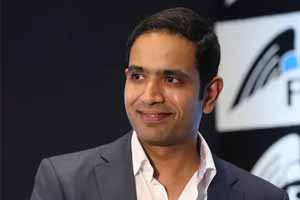 Suman Reddy, MD - Pegasystems India
Suman Reddy, MD - Pegasystems India
“The main objective of the Budget as set by the Finance Minister is to set the groundwork for PM Modi's aspiration of a $5-trillion-dollar economy. Arguably, one of the biggest beneficiary of this vision would be the technology industry. Following up from technology-related announcements during the interim budget including a national AI-centre and the Digital India vision, the government has acted on additional expectations from the sector. The elimination of excessive scrutiny through the angel tax through an e-verification process will improve the trust factor in valuation activities. Also, the government has put the first step forward with skilling focus on emerging technologies like artificial intelligence and robotics. However, the government has not elaborated on the latter, further to NASSCOM’s recommendations to show its commitment with an initial fund of Rs. 500 crore, and incentivize corporates to skill training by promoting spending. We also welcome the government’s move to allocate 25% of corporate taxes by increasing the ambit of companies from Rs. 250 - 400 crores of turnover. This will allow spending and boost the economy, while driving returns for the government.”
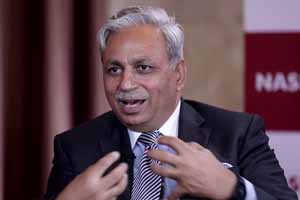 CP Gurnani, MD & CEO - Tech Mahindra
CP Gurnani, MD & CEO - Tech Mahindra
“We completely hail the government's vision of a New India that will thrive on the confluence of new age digital technologies, quality education and apt skilling. We look forward to partnering with the industry and academia to nurture the start-up ecosystem, and to fuel a culture of research and innovation that will help travel the road to India becoming a five trillion dollar economy.”
 Rajiv Bhalla, Managing Director - Barco India
Rajiv Bhalla, Managing Director - Barco India
“We are pleased with the government’s thrust on improving infrastructure and technology as catalysts for the economy going ahead. For India to be on the path to being the 3rd largest economy by 2030, the budget’s rightfully emphasizes that robust improvements are required in social infrastructure and education. The plan to set up 20 technology incubators to push rural development opens the stage for new initiatives that will enable India to become a $5 trillion economy in the years ahead. Additionally, the budget has emphasized on 17 ‘iconic sites’ which will be transformed into world-class destinations to provide an impetus to the tourism sector. All these initiatives, I believe, will assist in reshaping and empowering the country and will help to drive and sustain long-term growth for India.”
 Karan Kumar, Co-Founder & CTO - Hogar Controls
Karan Kumar, Co-Founder & CTO - Hogar Controls
“Union Budget 2019 has been a game-changer for internet availability across India. The announcement to step up the internet penetration in every corner of India is a concrete move towards bridging the digital divide that would further fuel innovations in the digital arena. The major thrust on AI, IoT, and 5G will allow us to come up as a global brand with the line of innovative automation solutions crafted specifically for the Indian market.
In this budget, we are seeing a lot of new initiatives which are the starting points for upcoming budding entrepreneurs on their journey towards realizing their dream start-ups. This should be a great platform for a start-up like ourselves to initiate tax planning, investment opportunities through dedicated bouquet channels set up for this sector. These initiatives will help us in giving a better understanding of the tax, statutory and regulatory framework in India.”
 Sudeshna Datta, Co-founder & Executive Vice President - Absolutdata
Sudeshna Datta, Co-founder & Executive Vice President - Absolutdata
"We are happy with the government’s vision for a technology-driven economy that prioritizes emerging technologies as the prerequisite for future growth. From promoting digital payments to training millions of youngsters in emerging technologies such as AI, Data Analytics and Machine Learning, and soft skill such as foreign language training, the initiatives are focused on empowering the future workforce with a ‘global-first’ perspective. This will significantly strengthen India Inc.’s capabilities for the future. Moreover, the allocation of INR 400 crores to develop world-class institutions focused on research and innovation is a huge step towards transitioning India from a service-focused economy to an innovation-driven one.
Additionally, the Hon’ble Finance Minister’s focus on women empowerment, by adding not just women-centric policies but propagating women-led initiatives, both in rural and urban areas, is a huge positive. Along with its proposal to form a dedicated committee to encourage their participation, the extension of the Stand Up India programme for another 5 years will be a key factor in enabling women entrepreneurs."
Budget 2019 opens new windows for the Start-up ecosystem. We welcome the government's initiative of setting up a new channel of Start-ups to disseminate information in the industry. This will serve as a platform for companies like us to better understand the opportunities and gaps, match-making with venture capitalists and for funding and tax planning. Also, the ease in Angel Taxes will help boost investment in Start-ups.
 Yogesh Bhatia, Founder - PreLoved Device
Yogesh Bhatia, Founder - PreLoved Device
“We welcome the initiatives announced by the honorable Finance Minister to boost the start-up ecosystem. The measures made by government will encourage fresh investment in the sector because of the set off of losses and increase in the period of exemptions of capital gains. The proposed TV Channel will be useful to prospective startups and rationalization of requisite declaration filling will make it easier for startups to operate and focus on their core activities.
The vision of the government to train 10 million industry-relevant skills such as Artificial Intelligence, Big Data, and IoT will open new avenues for employment.”
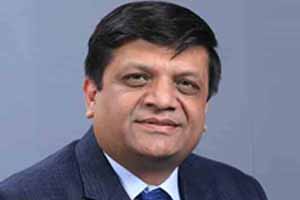 Arun Gupta, Founder and CEO - MoMAGIC Technologies
Arun Gupta, Founder and CEO - MoMAGIC Technologies
“This is a welcome move by the Indian govt. to lay emphasis on skill training for data science, AI and Big Data etc. as these are skillsets of the future growth engine in the tech industry. Many Indian companies including ours have been focusing on data science to provide cutting edge offerings in the space of digital mobile advertising and having a trained resource pool will drastically cut down the timing for training them.”
 Rahul Sharma, Managing Director-India, LogMeIn
Rahul Sharma, Managing Director-India, LogMeIn
"We would like to congratulate India's first female Finance Minister, Nirmala Sitharaman, for presenting an admirable budget. The Union Budget is a step in the right direction and strengthening the ICT infrastructure and the digital penetration in rural geographies. The Finance Minister has introduced the PPP model for BharatNet and has set up a committee to rationalize tax structure, review USOF, and the spectrum usage charges. This will considerably improve the industry dynamics as revenues continue to fade in the market. The Honourable Minister has further proposed several schemes to build skills, infrastructure, and conduct R&D around cutting-edge technologies including Artificial Intelligence and Big Data, which is another key takeaway."
 Nivruti Rai, Country Head, Intel India and VP, Data Centers Group - Intel
Nivruti Rai, Country Head, Intel India and VP, Data Centers Group - Intel
“It's a welcome move for the technology ecosystem and I am happy that the government is focusing on high-end technology manufacturing. I believe that this initiative complements India's strengths as a global hub for technology development and adoption. This will add further impetus to design, product development and design-led high value manufacturing in India. This also bolsters India's “Make in India” initiative and will enhance the country's competitiveness and growth.”
 Sharan Grandigae, Founder and CEO, Redd Experience Design
Sharan Grandigae, Founder and CEO, Redd Experience Design
As Prime Minister Narendra Modi gets ready for his second term in office, the country awaits the creation of favourable economic conditions that will not only allow new industries to grow, but also ensure energy and food security which are going to be the most important issues in the coming decades.The budget should take a two-pronged approach where on the one hand, it continues to encourage start-ups to form and grow and on the second, to boost the development of alternative energy industries.
The government has made advances in spurring start-ups on several fronts but has also adopted policies that make it harder for them to operate. There are fewer start-ups in India today than in even a small country like Israel. There have also been far fewer success stories to come from our country even though we have such a large talent pool. This can only mean that more efforts need to be made to make it easier for start-ups to establish themselves, raise funds, file taxes and hire and manage human resources while reducing the obstacles posed by licenses. The government should also continue to incentivise the establishment and development of start-ups in tier-3 and -4 cities as well. The potential pay-off from helping to build such an ecosystem cannot be fathomed as it could possibly change industries completely or give birth to new ones that aren’t even on our horizon today.
 KT Prasad, Country Sales Director, Zendesk India, on 'The Union Budget 2019'
KT Prasad, Country Sales Director, Zendesk India, on 'The Union Budget 2019'
"This is a forward-looking budget designed to accelerate commerce by encouraging foreign investment while also giving local home-grown businesses a leg up, and propelling job creation are encouraging steps towards boosting India's long term economic growth. The impetus on improving youth skills in disruptive technologies like Artificial Intelligence (AI), Internet of Things (IoT) and robotics reinforces the government's efforts towards building a Digital India. It is also encouraging to see initiatives that will boost India's standing on the global technology stage, such as establishing National Research Foundation (NRF) to promote research in AI, accelerating the Standup India program for budding women entrepreneurs, easing FDI rules, and proposing a host of enhancements to the digital payment systems among others. Businesses in India - large or small, new or established - are well-positioned to harness these opportunities by breaking free from outdated legacy technology and infrastructure and adopt more agile, scalable technologies that will empower them to achieve rapid growth. I would give this budget a thumbs up."
 Swetang Vin, Corporate Vice President and Regional CFO, AMD
Swetang Vin, Corporate Vice President and Regional CFO, AMD
Corporate tax rate of 25% for companies with turnover of Rs. 400 crore is a welcome move as 99.3% of the companies will benefit from this lower tax rate. This will help companies to deploy the surplus funds for investment in capex and R&D for future growth. At the same time it is disappointing that 25% rate was not extended to the remaining 0.7% corporates. This was an expectation from last 5 years.
The move to raise Income Tax Surcharge in highest tax bracket could have been avoided by increasing the tax net instead of charging the same tax payers.
The legacy dispute resolution scheme will help reduce open litigation and bring in additional revenue. However, we will await more details on how this will be handled.
 Rajarshi Bhattacharyya, Country Manager, SUSE India
Rajarshi Bhattacharyya, Country Manager, SUSE India
"We welcome the Government's move in promoting Digital India, Startup India and other initiatives which are positive steps for the economy. It is evident that with focus being put on skilling the youth in technologies such as AI, Robotics & Big Data, the Government is reinforcing the importance of digital innovation. The upcoming generation will be a driving force of the economy, knowledge of deep technologies will help make them employable and bridge the gap between demand and supply of talent. Open source companies like SUSE can be benefited from this talent pool, and be encouraged to work and support the nation and enterprises towards becoming globally competitive."
 Arvind Chandrasekar, Director, Government Affairs & Regional Relations, AMD
Arvind Chandrasekar, Director, Government Affairs & Regional Relations, AMD
We commend the Government’s decision to invest in deepening India’s AI, Virtual Reality and Big Data skillsets. We also welcome the Government’s approach to skilling, which embraces the free movement of talented individuals across borders and furthers global collaboration.
AMD welcomes the government’s renewed vigour on making India a knowledge hub. India already produces world-class engineers doing cutting-edge work globally, and this move will enhance the availability of talent pool in India, and in turn attract more companies to set up R&D bases closes to where this talent is being nurtured.
AMD is very excited on the Finance Minister’s mention of a transparent competitive bidding process to set up mega manufacturing plants in areas of semi-conductor fabrication. AMD believes that acquisition of critical IP will make these foundries globally competitive and will be the key driver that will attract such mega-investments in India. We believe a broader industry consultation can pave the way for a cohesive approach to help bring these cutting edge future technologies to India.
AMD lauds the allocation of funds to the NRF, such initiatives can help attract IP to India forming the base for research. AMD has worked on such initiatives globally and looks forward to collaborating with the Govt. of India in such an initiative.
AMD lauds the government’s move to provide free accounting software for small businesses. We believe that this presents an opportunity as many small and medium businesses have little or no IT infrastructure at present, which would lead to growth in the consumption of personal computers as these entrepreneurs embrace technology.
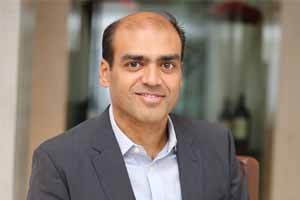 Sumeer Chandra, MD, HP Inc. India
Sumeer Chandra, MD, HP Inc. India
“It is great to see the focus on making India a $5 trillion economy by 2025, through investments in infrastructure, digital economy and job creation. In the short term, the Rs. 70,000 crore capital boost for PSU banks will help improve business confidence and overall liquidity situation. The government’s intent in driving job creation across sectors by reskilling and upskilling the youth is a strong positive. Initiatives to prepare 75,000 skilled entrepreneurs in agro-rural industries through 100 new incubators under ASPIRE scheme and training 10 million youth under the Kaushal Vikas Yojana with new-age skills in areas like artificial intelligence, Internet of Things, big data, 3-D printing, virtual reality and robotics, will help create a large pool of skilled manpower in India.”
“The budget 2019 is forward looking with an eye towards making India a $5 trillion economy. It aims to create a business ecosystem characterised by easy access to funds, simplified GST compliance, and availability of payment collection infrastructure for MSMEs that can help improve their cash flow.”
 Dr. Rishi Bhatnagar, President-Aeris Communications & Chairman IET IoT Panel India
Dr. Rishi Bhatnagar, President-Aeris Communications & Chairman IET IoT Panel India
“The union budget 2019 supports India in its technological revolution where artificial intelligence along with IoT and big data are going to play a major role. The FM proposed to establish a National Research Foundation (NRF) which we believe will help the Indian workforce to skill/upskill and meet the industry demands in the technology space. Trained workforce on AI, IoT, Big Data, which are valued highly both within and outside the country; helping in creating more jobs and bridging the 15 million unemployment gap. The GOI needed focused efforts on building state-of-the-art facilities and bring reforms in the education ecosystem. The new budget initiatives positively addresses the skill gap problem.
The future is electric with EV the best option for sustainable development. However, The low demand and high cost are arresting its growth in India. Government being the largest enterprise of a country, the adoption push needs to come from them. While the GST reduction from 12% to 5%, and an additional rebate of Rs. 1.5 lakh of interest on loan for EV purchase is a welcome move, the FAME 2 scheme will only reap benefits when the GOI is able to create sustainable demand, bring down the cost of manufacturing with ‘Make in India’, and build infrastructure for EV charging stations the way we have petrol pumps today. Therefore, while a lot of efforts have gone in for bringing the policy, there’s a lot more to be done to make EV sustainable and a success story in India."
 Rakesh Soni, CEO & Co-founder, LoginRadius
Rakesh Soni, CEO & Co-founder, LoginRadius
"We would like to congratulate the Modi govt 2.0 on Budget 2019. It captures the Government’s vision of New India accurately, promoting ease of business & living. As a startup ourselves, we welcome the move to organise a Global Investors’ Meet in India to ensure equal opportunities for startups with growth potential. It will put India on the global map as a land of business opportunities. The initiatives to train the Indian youth in technologies of the future - AI, IoT and Big Data is another welcome move by the Government. With more than 50% of population below 25, India has a significant advantage compared to the developed nations and these skills will serve as doorways to help contribute to the global workforce's of the future."
 Neel Juriasingani, CEO & Co-founder, Datacultr
Neel Juriasingani, CEO & Co-founder, Datacultr
"Startups in the technology industry can take clues out of the various topics touched upon in this budget, to understand the direction and focus. The vision of the government to train 10 million industry-relevant skills such as Artifical Intelligence, Big Data, and IoT opens up great avenues for companies & start-ups like us in the space, as well as for those working on building digital infrastructure of a connected India.
Besides, other measures announced such as ease of angel tax will make it smoother for investors to put in their money in startups."
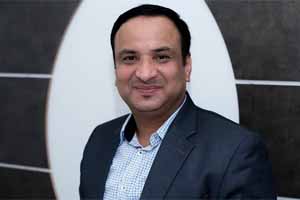 Rajesh Gupta, Founder, Cash Suvidha.
Rajesh Gupta, Founder, Cash Suvidha.
"We are glad that the Budget 2019 continues with the approach set in the interim budget, which offered exemptions to taxpayers, support to farmers and encouraging digitalisation. We welcome the government’s initiative to set up a new channel for startups to disseminate information in the industry. This will provide a great platform for companies like us to discuss and resolve the key issues and challenges faced by entrepreneurs today. The match-making with venture capitalists over this channel will boost investments in the startups space. Further, in the wake of liquidity crisis in non-banking financial companies (NBFCs), I believe the government’s move toallow Foreign Institutional and Portfolio Investors to invest in debt securities offered by NBFC will certainly help them to raise funds."
 Ashutosh Harbola, CEO & Co-founder, Buzzoka
Ashutosh Harbola, CEO & Co-founder, Buzzoka
"The budget looks to be a Truly Digital one in nature and strong steps are seen for the upcoming fiscal year. From new channels to be started under the Doordarshan bouquet to provide a platform for startups to disseminate information in the industry to Bharat Net which is targeting internet connectivity in local bodies in every panchayat in the country are all welcome steps.
Also, training of 10 million in industry-relevant skills like AI, IoT, and Big Data will help address the severe skill-shortage of technology and IT. We are really optimistic that the digital path taken by the government is surely matching the $3 Trillion vision."
 Rashi Gupta, Chief Data Scientist & Co-founder, Rezo.AI
Rashi Gupta, Chief Data Scientist & Co-founder, Rezo.AI
"Training support for supporting advanced technical jobs in the space of AI, IoT is a welcome move. We welcome the government's vision to train 10 million in industry-relevant skills like AI, IoT, and Big Data because these industries will be a much larger industry for India in the next 3-5 years as compared to what we have seen in IT over last 2 decades. Startups will have an integral role to play towards this growth, so trained resources availability shall help India gain the next leap in the future."
 Faisal Kawoosa, Founder and Chief Analyst, techARC
Faisal Kawoosa, Founder and Chief Analyst, techARC
“The budget while precisely laying the foundation of the role technology has to play for distant New India, has very little to offer for immediate New India. The expectation was some out of box thoughts that could resolve some major challenges like debt in telecom, increasing domestic value addition in manufacturing or tech led job creation. But this is a budget at usual.”
 Geetansh Bamania, CEO & Founder, RentoMojo
Geetansh Bamania, CEO & Founder, RentoMojo
"This is perhaps the most startup-friendly budget we have had in a long time. The decision to allow 100% FDI in insurance intermediation and removal of 30% local sourcing norms for retail with FDI would help specific set of start-ups in these industries/sectors. It is a huge relief that the scrutiny for share premium and valuation is being done away with. The decision to streamline and simplify labour laws is long pending and definitely helpful for the startups. We will wait to see the actual implementation on the measures related to additional incubators and an increase in allocation for stand-up India scheme."
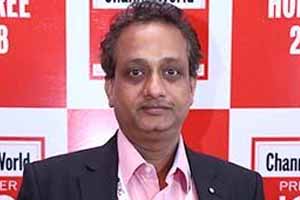 Sanjay Agarwal, Director, and Co-founder at Umbrella Infocare
Sanjay Agarwal, Director, and Co-founder at Umbrella Infocare
"Finance Minister Nirmala Sitharaman today presented the maiden budget of Narendra Modi 2.0 government. She proposes 100% FDI for insurance intermediaries that will boost investments in the sector. Government is also considering to increase FDI in aviation and media. Investment by FIIs and FDIs in debt securities in infrastructure debt funds to be allowed. It's a welcome move to integrate PAN and Aadhar that will ease taxpayers who don't have PAN to file returns by simply quoting Aadhar number. Also, she proposes to allow an additional tax deduction of Rs 150,000 on interest paid on housing loans for self-occupied house owners.
This budget of Modi 2.0 is a balanced budget and ensures the continuity of policies at ground level without offering big bang changes.
Most neglected area Gaon, Garib, and Kissan have got the maximum attention through many large scale welfare schemes. Simplifications of GST, Investments, Labour Laws simplification got covered. However there nothing to cheer for Individuals directly due to no change in IT slabs.
I am sure, the Finance Minister will announce more policies to ensure growth regularly, without waiting for the next budget. Unfortunately, there is nothing specific to promote IT products and services however few demands of Startups have been met."
 Arijit Biswas, Co-Founder at EnrichAI
Arijit Biswas, Co-Founder at EnrichAI
"We feel that Budget 2019 will foster the startup ecosystem in the country by encouraging different stakeholders including entrepreneurs, investors, talent and consumers to participate in a more spirited manner. While the government’s push to skill India’s youth in cognitive technologies will help startups source talent easily and big pocket global R&D teams, setting up of a dedicated TV program for and by startup founders will provide a cost-effective medium to entrepreneurs to demonstrate innovative ideas and gain mind share of the mass. The announcement to relax scrutiny of the tax returns filed by founders and investors will allow the startup ecosystem to focus wholly and solely on innovation and value creation, and not get bogged down by administrative procedures.
Overall, we feel that the budget will encourage the youth of the country to consider entrepreneurship a very serious and viable career option post their academic pursuits."
 Santosh N, Senior Advisor - Duff & Phelps
Santosh N, Senior Advisor - Duff & Phelps
“I think the development on angel tax is a very positive news for all genuine startups. The angel tax was introduced to curb money laundering and in the process many genuine startups suffered. Startup valuation is very complex and highly subjective and more often than not is based on negotiation between the investor and the promoter. To support such a value using traditional valuation methodologies is not only unreasonable but sometimes not possible as well.”
 Sanjay Gupta (India Head), Vice President and India country manager - NXP
Sanjay Gupta (India Head), Vice President and India country manager - NXP
“We welcome the government’s move to lower the GST rate from 12% to 5% for purchase of Electric Vehicles and the vision to make India as the global manufacturing hub. The push for FAME II by providing the right incentives can encourage a faster conversion rate. Semi-conductors and host of other components will be vital in developing the EV Ecosystem in the country and as NXP, we will play a vital role to foster this goal. Initiatives such as complete elimination of customs duty on some EV components could prove to be a game-changer for the auto-industry. Currently, over 80% of the cars in India use NXP chip for RFID key”.
“Research and Development is crucial for an advanced ecosystem of infrastructure to exist. The government’s focus on incentivizing research by forming a National Research Foundation and encouraging foreign engineers and researchers to come and collaborate is a landmark announcement for India’s electronic industry. For NXP, India is majorly the innovation hub. We run three design/ R&D centres in India which innovate technologies for the world. There are more than 2000 people in Design Centers (Noida, Bangalore and Hyderabad) who are involved in development of semiconductor hardware and software designs across various verticals – Automotive (connected cars), digital payments (NFC enabled), 5G (RF solutions) and many more.”
 Shailendra Naidu, CEO - OBOPAY
Shailendra Naidu, CEO - OBOPAY
“We welcome the Union Budget announcements which have brought out an array of improvements in the digital payments ecosystem. To begin with, proposing norms to ease FDI in Fintech startups and excluding startups from angel tax assessments if they meet the requisites of e-verification process are significant moves. Encouraging the use of digital payment instruments such as BHIM, UPI and Aadhaar Pay will go a long way towards a cashless economy and financial inclusion. Given the fact that the government has provided RBI with more power, we foresee NBFCs witnessing significant growth in coming years. Enhancing the turnover limit of companies from Rs 250 crore to Rs 400 crore in paying the corporate tax of 25% will surely boost the overall sentiment of the Fintech community. Further, giving provisions of one-time six month partial credit guarantee to buy pooled assets of sound NBFCs is a landmark decision.”
 Rajesh Srivastava, Executive Chairman, Rabo Equity Advisors
Rajesh Srivastava, Executive Chairman, Rabo Equity Advisors
"Although the government has done some significant work in launching schemes such as the PM-KISAN scheme to support farmer’s income, we were expecting a lot more from this budget for farmers’ welfare. This year’s budget presented some great announcements such as zero budget farming wherein farmers can benefit through modern farming methods involving zero credit for agriculture and zero use of chemical fertilizers. This will double the farmers’ income in future. Another great news is setting up of 10,000 new farmer producer organisations and giving access to quality water for harvesting. Further, to ensure that the farmers reap the benefits of National Agriculture Market or e-Nam in better price discovery and facilities for smooth marketing of their produce, government must educate and train the farmers.”
 Sunil Sharma, managing director sales, Sophos India & SAARC
Sunil Sharma, managing director sales, Sophos India & SAARC
“With India poised to become a USD 5 trillion economy in the next five years, we welcome the Government’s impetus in making India a digital economy. The proposal of ensuring the growth of SMEs through various initiatives including establishment of an online portal for MSMEs for filing of bills or the government’s efforts at improving the cybersecurity skills of our youth in next generation technology areas such as Artificial Intelligence, Big Data and Robotics, aims at meeting the huge demand of skills required in IT and cybersecurity while we look at strengthening the digital transformation wave. Withcyber threats being detected on servers (39%), network (35%), endpoints (8%) and mobile (18%) and 89% of IT managers believing cybersecurity recruitment is a challenge, there still remains a pressing need for further investment in technologies for data protection and IT Security, both from the Government and organization’s standpoint.”
 Somesh Misra, VP Operations, Deskera
Somesh Misra, VP Operations, Deskera
“With India having more than 50 million SMEs, the 2019 budget seems incredibly promising for further augmenting their growth and development. Also, with the Government announcing the establishment of an online portal to enable filling of bills for MSMEs, this has the potential to materially impact the SME landscape in India. Additionally, by offering credit of up to Rs. 1 crore within an hour for SMEs, will enable businesses to increase investment in R&D, upskilling and bringing in technological innovations to work. Government’s efforts to improve the skills of our youth in newer areas such as Artificial Intelligence, Big Data and Robotics will definitely help the Indian IT services sector to ride on the digital transformation wave. Lastly, the announcement of easing angel tax on start-ups has also given relief to the startup community. All of these initiatives will truly be a game changer for the Indian economy and ensure the country achieves its target of becoming a $5 trillion economy by 2025.”
 Bhavin Turakhia, co-founder & CEO, Zeta
Bhavin Turakhia, co-founder & CEO, Zeta
‘’The Budget 2019 has witnessed giant leaps towards building a cashless economy. One of the biggest steps is developing the country’s first payment system (One Nation-One Card)for transport which will be a holistic card for citizens for digital payments across travel, shopping etc. The decision of not charging customers for digital payments and waiving off the MDR charges is also a push in the right direction to encourage every citizen to carry out digital transactions and make India a less cash economy. Additionally, the Government of India has made a much-needed move for working professionals by bringing in ease and convenience by proposing to make PAN and Aadhaar interchangeable along with making them available with pre-filled tax returns which aims to reduce the time taken to file a tax return as well as enable accurate reporting of income and taxes. The digital push also reflects in the tax filing process as with the launch of a scheme of faceless assessment in electronic mode involving no human interface. The government has introduced several measure that are in line with the ‘Digital India’ vision and we welcome the same.”
 Vishal Gondal, CEO and Founder GOQii
Vishal Gondal, CEO and Founder GOQii
“The Budget 2019, is paving the way for a brighter future for India’s start-up ecosystem with easing of the angel tax thereby ensuring more entrepreneurs join the start-up bandwagon. The idea to have a separate channel for start-ups under the aegis of Doordarshan will help disseminate critical information on a real-time basis to budding entrepreneurs in the tier II and III markets particularly thus enabling them to help realise the Government of India’s vision of becoming a USD $3 trillion economy this year.
Also, since GOQii’s inception in 2014, the company has supported the ‘Make in India’ movement and has been striving hard towards making India a healthier nation through our continuously evolving and innovative preventive healthcare offerings and initiatives. The Government of India’s commitment to expand Khelo India scheme for the development of sports and sportsperson is a very welcome move; it will encourage more Indians to take up sports and be the torchbearers of health and fitness.
Also, the insure-tech industry will benefit with 100% FDI being permitted for insurance intermediaries in India. This will enable the insurance market to grow. As per recent EY’s Global Insurance Trends Analysis 2018, $2.3 billion has been invested into insurtech startups, representing over 45 percent of insurance investments spanning 2012-17. Insurers are using technology that assesses health risks and for diagnostics. This technological developments along with assistance from AI and ML will make insurance and technology, weave a better and more informed future for healthcare and smart preventive healthcare.”
 Mr. Jitendra Chaturvedi, Director & Co-Founder, Batooni, Mobile Advertising startup
Mr. Jitendra Chaturvedi, Director & Co-Founder, Batooni, Mobile Advertising startup
” If the budget proposals are followed up this should mean, for small businesses, relief in compliance and opening up of new sources of funding courtesy the proposed changes in venture funding scrutiny and taxation. If the money does find its way in infrastructure the way the FM has laid out, the economy should see some pick up that is absolutely necessary for the survival of small businesses. This will help the economy turn a corner soon”.
 Kishan Jain, Director, Goldmedal Electricials
Kishan Jain, Director, Goldmedal Electricials
“As the Indian economy is poised to become a 5 trillion dollar within the next few years, there is an enormous opportunity for Indian companies to grow and flourish. Government’s impetus on provision of electricity connection to every rural Indian family was a much needed reform. Also, as energy efficient products & solutions are seeing increased adoption, we are pleased with the government’s UJALA scheme of distributing approximately 35 crore LED bulbs and promoting the use of LED bulbs across the country. This will provide a tremendous boost to companies such as Goldmedal that have been at the forefront of introducing energy-efficient solutions such as LED lighting. Additionally, the Government’s proposal to provide INR 100 lakh crore investment in infrastructure over the next 5 years along with an increased focus on Make in India, will provide a further fillip to companies looking to set up manufacturing facilities in the country.”
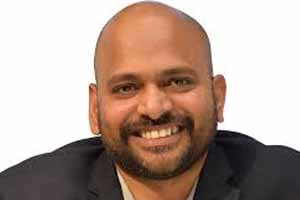 Satya Kalyan Yerramsetti, Founder & CEO of Telebu
Satya Kalyan Yerramsetti, Founder & CEO of Telebu
"The Union Budget has made adequate allocations for the telecom sector whose revenues have been tumbling since quite a while now. The Government has set up a committee to rationalize tax structure, review USOF, and the spectrum usage charges, which will make the business environment more conducive within the sector. These measures will work in the favour of unified communications providers like us. It has also taken targeted steps towards rural infrastructure expansion and introduced PPP model for BharatNet to eliminate the prevailing rural digital divide. We believe that companies such as Telebu will benefit immensely from this year's Union Budget, as it will expedite their goals of proliferating into rural as well as tier-2 and tier-3 cities."
 Nikhil Arora, Vice President and Managing Director, GoDaddy India
Nikhil Arora, Vice President and Managing Director, GoDaddy India
“We welcome the Government of India’s Union Budget 2019 that promises an all-round and inclusive growth of the country. The reforms presented in the Budget 2019 reiterate government’s commitment to foster a friendly environment for small businesses, women-owned MSMEs and startups. While steps like exemption of scrutiny on angel taxes, e-verification of taxation and dedicated TV channel for the startup community, will help bolster the spirit of entrepreneurship in the country; the government’s increased focus on providing better incentives to women entrepreneurs is a commendable initiative. The Budget also offers big slew of reforms for the MSME sector such as creation of payment platform for filing bills, easy access to loans up to INR 1 crore within 59 minutes and credit boost through INR 350 crore interest subvention - all of which will encourage more people to start their business journeys. With India poised to become a $3 trillion economy this year, we at GoDaddy, are committed to continue working with the government and our partner ecosystem, helping entrepreneurs and small businesses to successfully grow their ventures online, with our easy-to-use and affordable tools and solutions.”
 Marthesh Nagendra, Country Manager - India & SAARC, NETGEAR
Marthesh Nagendra, Country Manager - India & SAARC, NETGEAR
“Government’s target to make India a $3 Trillion dollar economy is a welcome move as it increases the GDP and spending power. The increased spending on high tech education and high emphasis on digital India will increase the demand for IT products. We feel extremely optimistic as the budget is quite inclusive this time.”
 Mr. Rajiv Kapoor, Vice President, India & SAARC, Cambium Networks
Mr. Rajiv Kapoor, Vice President, India & SAARC, Cambium Networks
“The Union Budget takes forward the positive momentum set by the earlier announced Interim Budget particularly on areas involving Digital Villages and taking broadband to masses. The thrust on digital economy is a welcome move as well. With the government increasing basic customs duty on optical fibre, the focus seems to now shift to Make in India. Overall, the budget has set the right tone to enable connecting the unconnected and also scaling the country to be able to develop global best solutions for high speed wireless connectivity.”
See What’s Next in Tech With the Fast Forward Newsletter
Tweets From @varindiamag
Nothing to see here - yet
When they Tweet, their Tweets will show up here.































